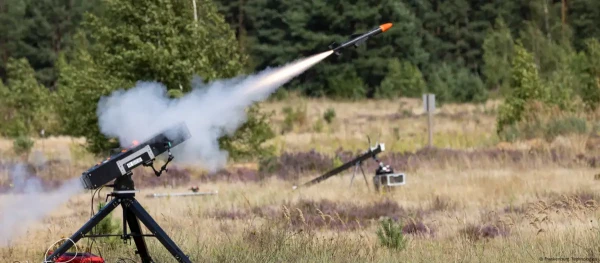
The example of cheap UAVs being shot down over Poland by expensive missiles showed that NATO lacks economically effective countermeasures. Baltic startups are trying to fill the gap by leveraging Ukraine's experience.
What will happen if Russia simultaneously launches hundreds of drones into NATO airspace? This has been happening daily in Ukraine since the beginning of the full-scale Russian invasion in February 2022. The European Union and NATO have begun to urgently prepare for this scenario after Russian UAVs repeatedly invaded the airspace of alliance countries in September, as well as after numerous sightings of suspected Russian drones near airports across Europe.
Radars in Estonia, a NATO member, do not detect incoming drones because "they fly too low," says Thomas Jermalavicius, a researcher at the International Centre for Defence and Security in Tallinn. "We also lack the means to shoot them down. The means that would have an acceptable cost-to-effect ratio," he told DW. According to Jermalavicius, the destruction of Russian drones over Polish airspace on September 9 is a vivid example, as missiles costing half a million dollars were used against drones worth no more than 50,000 dollars (42,930 euros).
Military experts are concerned that such a mismatch between the cost of expensive interceptors and cheap drones could negatively impact NATO's air defense in a full-scale war.
According to Jermalavicius, to address this issue, startups must take center stage in counter-drone defense strategies, especially considering that drone attacks account for up to 80% of losses in modern combat. "Startups are disrupting the patterns according to which our procurement systems and our defense industries have operated for decades," he says, adding that they are necessary to accelerate developments.
Can Frankenburg Solve the Problem?
One of the startups promising an affordable and mass-market counter-drone system is the Estonian company Frankenburg Technologies, based in Tallinn and with offices in the UK, Ukraine, Latvia, and Lithuania.
In less than a year, Frankenburg has developed a prototype of an air defense platform, which the company’s CEO, Krasti Salm, positions as a solution to overcome NATO's "greatest vulnerability." "Everything that Russia launches at Ukraine and could potentially launch at targets in Europe is orders of magnitude cheaper than what we can use to shoot them down," he told DW. According to Salm, the goal of the project is to make the Frankenburg system ten times cheaper than existing short-range air defense systems, such as the American air-to-air Sidewinder missiles.
Currently, Frankenburg has received an order from one NATO country and hopes to soon begin production of hundreds of interceptor missiles per week thanks to a 4 million euro investment received in March.
According to the British newspaper Financial Times, since last year, startups specializing in drones and robotics have attracted more than half of all venture capital in the European defense sector. Therefore, it is not surprising that three out of four European defense startups with a market capitalization of over 1 billion euros are drone manufacturers, including the German companies Helsing and Quantum Systems, as well as the Portuguese Tekever.
What Are the Vulnerabilities of Startups?
Western militaries are clearly interested in inexpensive and effective solutions, but on the other hand, they exhibit a certain caution regarding investments in predominantly unproven technologies, as they are traditionally risk-averse. "(Investors and defense ministries - Ed.) want to buy a finished product with proven long-term support," says the head of the startup Harlequin Defense, Lithuanian Ritis Mikalauskas.
Jermalavicius believes that caution is also related to uncertainty regarding the sustainability and long-term existence of startups. "If I buy a lot from a startup, and it goes bankrupt in two years, who will support its production facilities, service them, supply spare parts, and upgrade?" he asks.
Another problem facing startups is increasing competition, says Mikalauskas. "For more than a year, there has been a joke at defense conferences: 'Everyone and their mother has a drone startup,'" he told DW.
The weekly emergence of new companies developing drones also raises the question: is there enough demand for UAVs in Europe to meet supply needs? For example, the German military plans to procure only 8,300 unmanned systems by the end of the decade - much less than in other NATO countries.
However, Kaspar Gering, co-founder of the defense technology venture capital fund DarkStar, considers these concerns unfounded. This fund aims to combine the expertise of founders of successful startups, military experts, investors, and technical leaders. "Estonia is conducting a multi-year tender worth 400 million euros for the development of loitering munitions, which include certain types of drones," Gering told DW. "And the number of tenders related to drones is growing across the EU."
Countries on NATO's eastern flank, including Estonia, have begun attracting startups to create a so-called "drone wall." The EU initiative is expected to include radars, acoustic sensors, mobile cameras, jammers, and drone interceptors.
Startups Must Be Tested in Combat in Ukraine
Frankenburg and other Western startups also have established connections with the Ukrainian military, allowing them to respond more quickly and accurately to the constantly changing combat environment than long-established defense companies and startups without such connections. According to Salm, Frankenburg's interceptor missiles "have no aspect that has not been influenced by battlefield information obtained in Ukraine."
Such unobstructed access is what separates the wheat from the chaff, believes Jermalavicius from the International Centre for Defence and Security. "Ukrainians have a mountain of data collected during operations using drones, but they usually do not share it with foreign defense companies due to restrictions related to the military situation," he said. "Therefore, without close ties to combat units, the question is how well foreign products can meet the realities on the battlefield."
Will European Startups Have a Decisive Advantage?
The ability of European startups to play a decisive role in countering potential attacks from Russian drones also depends on how much EU governments reduce bureaucracy and create a legal framework for companies to operate during wartime even in peacetime, believes Mikhail Rudominsky, who co-founded the Ukrainian startup Himera in 2022, which produces secure tactical communication systems resistant to electronic warfare.
"At the beginning of the full-scale Russian invasion, we had to ignore several restrictive laws that hindered the development of innovative defense solutions," says the 25-year-old specialist, urging NATO countries to "have a set of laws ready in case hostilities begin to avoid limiting the functionality of their weapons."


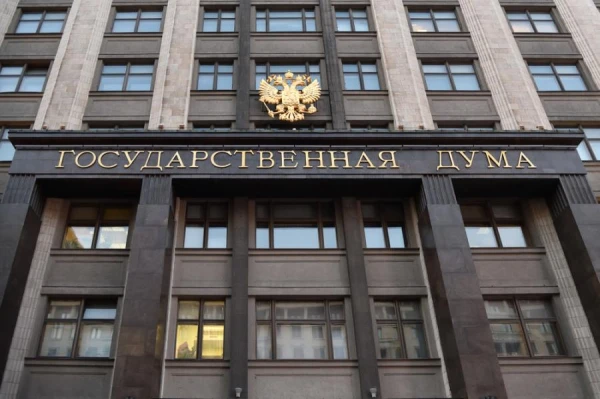




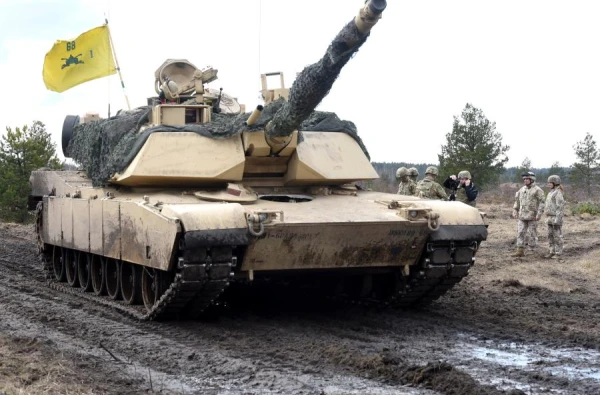


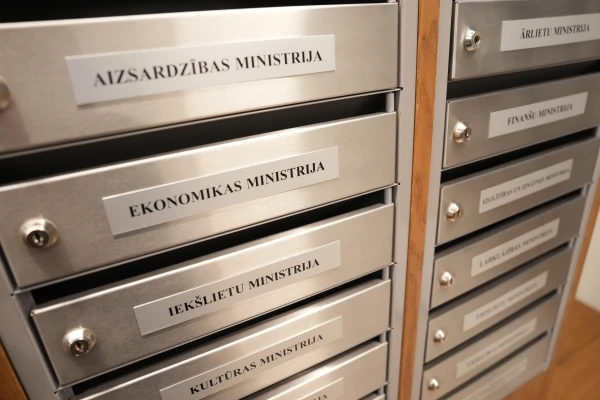
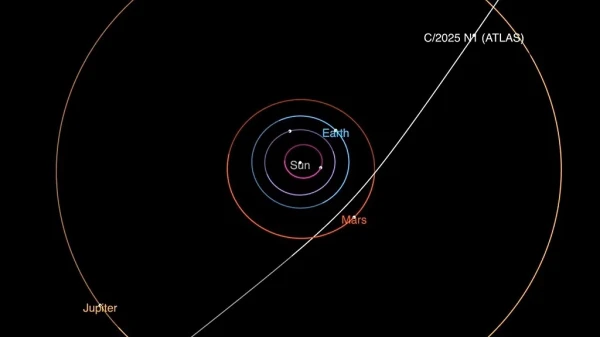
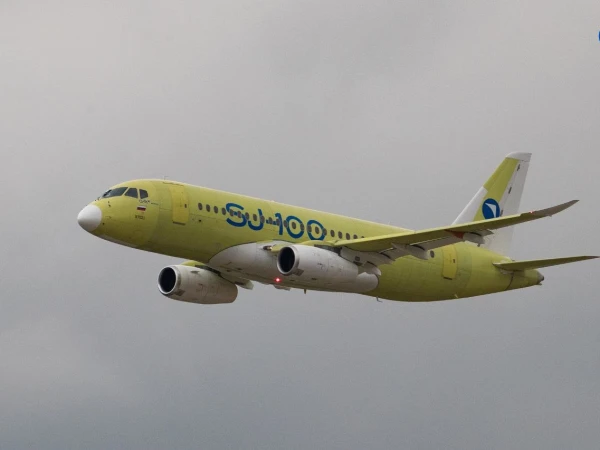

Leave a comment